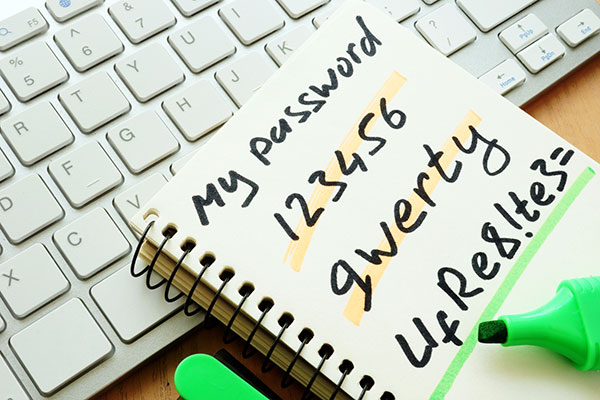It was not so many years ago that you paid your bills with a checkbook and a roll of stamps. Buying or selling stocks required picking up a landline telephone and talking to your broker. If you wanted to transfer money from your checking account to your savings account, you went to the bank.
Today, those same financial transactions can be handled from your computer or smartphone.It’s convenient, quick, and cost effective—right up until the moment a cybercriminal finds a way to get what they want from you. That’s when the hidden cost of all that convenience becomes glaringly obvious.
Of course, when it comes to safeguarding your financial interests online, you don’t have to cross your fingers and just hope you never become the victim of a cybercrime. Take action to protect yourself, starting with these five easy steps.
- Read Your Statements. Whether you receive financial statements online or in the mail, look them over for any signs of suspicious activity. Open them the day they arrive, and if you see any outright mistakes or have questions about any transactions, place a call to your financial institution as soon as possible. If needed, follow up with an old-fashioned written letter, too.
- Protect Passwords and PINs. If you’re using the same passwords and PINs today that you started with five years ago, your online financial security is at risk. You need to take a proactive approach to guarding the gates to your money and information. Install a password manager (perfectly good free ones are available) and on a regular basis invest a little time updating your passwords and PINs. Change them often. If you can’t remember them, that’s great!
- Install Security Software. This is nonnegotiable. If you make financial transactions of any sort online, you need to protect your interests with security software packages that include anti-virus, anti-spam, and spyware detection features. You need to ensure that the software is always turned on and that it is set up for automatic updates. If you’re uncertain about such things, get some help online or at a tech shop.
- Install Encryption Software. Scrambling the information that comes and goes from your computer may seem like a step too far. You’re not a master spy, after all. But if all of your financial transactions are taking place out there in cyberspace, you owe it to yourself to get a handle on this. If you need help, get some help. You didn’t set up your home security by yourself. Why should this be any different?
- Avoid Unsecured Wi-Fi Connections. Just because you can trade stocks or pay the electric bill from your favorite coffee shop doesn’t mean you should. Those public connections often come with reduced security features. This makes them easy to access, which is what we all love about them. But reduced security increases the likelihood of someone snatching your data. So why risk it? Take care of financial business from the safety of your home.
